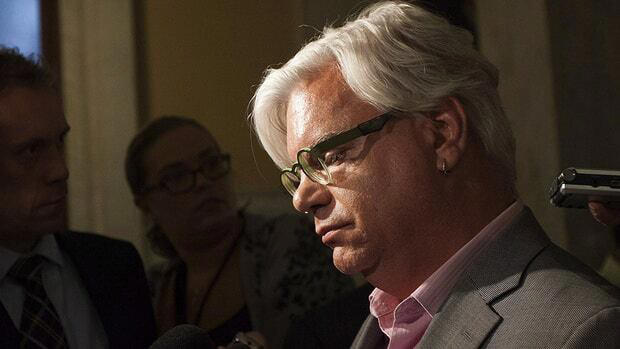Labour minister condemns Ontario union and president for comments about Israel
PRO PALESTINE IS NOT ANTISEMITISM
Federal Labour Minister Seamus O'Regan has joined a chorus of condemnation directed at an Ontario union and its president for statements made in the wake of attacks in Israel by Hamas over the weekend.
The Palestinian militant group staged an attack on Israel early Saturday, firing rockets, killing civilians and taking hostages.
The following day, Fred Hahn, president of the Ontario branch of the Canadian Union of Public Employees (CUPE), posted a statement on X, formerly known as Twitter, praising "the power of resistance around the globe."
O'Regan said Hahn's statement amounted to a "glorification of violence."
"The loss of civilian life is not a cause for celebration. Not in Canada. Not anywhere," the minister said in a statement to CBC News. O'Regan's comments were first reported by the Globe and Mail.
Michael Mostyn, CEO of B'nai Brith Canada, said Hahn's comments were "beyond the pale" and called on him to step down.
"How hard is it for this union to unequivocally condemn Hamas for the murderous onslaught for which they are solely to blame? This is an absolute outrage to all Canadians," Mostyn said in a statement.
Ontario Premier Doug Ford also condemned Hahn's comments, calling them "disturbing."
"They do not reflect the views or values of Ontario, and I do not believe they represent the opinions of the workers he claims to speak for," Ford said in a statement.

Fred Hahn, president of CUPE Ontario, praised 'the power of resistance around the globe' in a social media post the day after Hamas's attacks in Israel. (Michelle Siu/The Canadian Press)© Provided by cbc.ca
On Wednesday, Hahn posted another statement on X, saying that his original post was not an endorsement of violence.
"For anyone to imagine that I would ever endorse violence is horrific to me," his statement read.
Following the backlash, CUPE Ontario released a statement condemning the violence but ultimately defending Hahn, saying he and the union were being "targeted by a highly organized pro-Israel lobby that seeks to control the anti-Palestinian narrative."
O'Regan accused CUPE of "spreading of antisemitic conspiracy theories" with its subsequent statement.
"This is not a reflection of Canada's labour movement, and we cannot let it take away from the outpouring of support union leaders have expressed for Israel," O'Regan said.
CBC News has reached out to CUPE Ontario for reaction to O'Regan's comments.
When CBC News reached CUPE's national branch for reaction to the statements by Hahn and O'Regan, a spokesperson pointed to the organization's statement regarding Israel's ongoing war with Hamas.
"We are horrified by the Hamas attack on Israel and the retribution by the State of Israel on the people of Palestine, and condemn all acts of violence against innocent civilians," the statement reads. It also urges the government to call for a ceasefire










